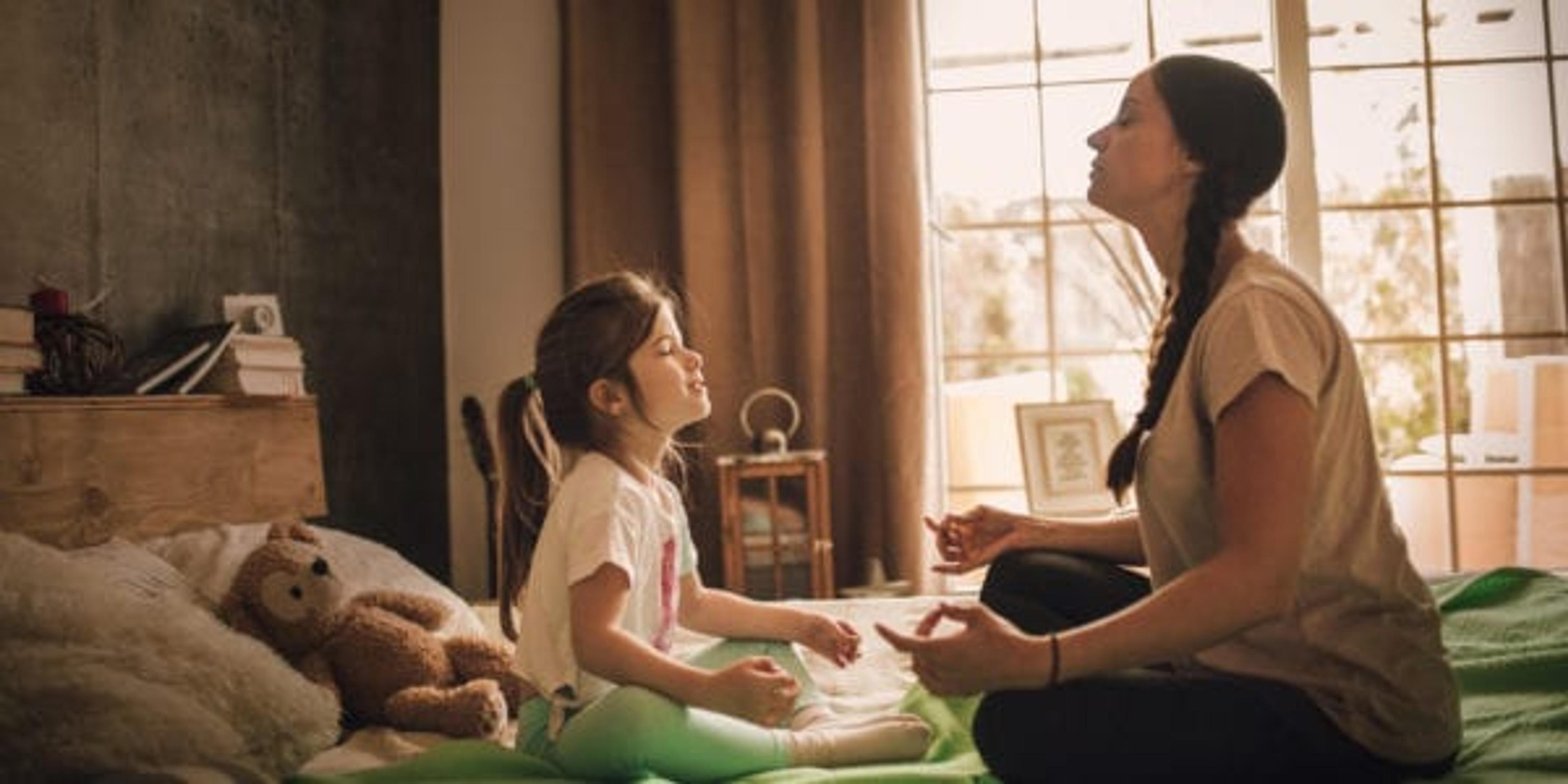Mindfulness-Based Techniques to Calm Kids’ Anxiety
| 5 min read

For a stretch of about six months, my seven-year-old daughter had trouble falling asleep. The more she thought about falling asleep, the harder it became to actually fall asleep. Multiple times per night, I’d find her in my room, tears coming hot and fast as she wailed and worried, wondering if she’d somehow lost the ability to slumber.
Consoling and reassuring her that what she was experiencing was normal wasn’t working. She would eventually drift off and stay asleep through the night, but it was heartbreaking to see her worry. Luckily, a co-worker had recently introduced me to a mindfulness technique using all five senses and I asked my daughter to give it a try the next time she experienced insomnia.
Essentially, when she found herself tossing and turning, I asked her to try to quiet her mind and name five things: one she could hear, one she could see, one she could smell, one she could feel and one she could taste (this was usually a sip of water from the cup by her bed).
While it didn’t immediately resolve the problem – there were still many teary late-night visits – it did help her channel her frustration into action. It also gave me a tool to have her try, which made us both feel more empowered and less helpless. I’m happy to report that sleep seems to come easier to her lately and I suspect the mindfulness technique played an important role.
Calming Anxious Kids
This experience with my daughter made me curious about other mindfulness-based techniques that can help kids when they’re dealing with anxiety. About 7% of children aged 3-17 years in the U.S. have diagnosed anxiety and rates have been steadily rising.
According to the Centers for Disease Control and Prevention, symptoms of anxiety in children can include trouble sleeping and physical signs such as fatigue, headaches and stomachaches. Even if your kids don’t have diagnosed anxiety or display any worrying symptoms, empowering them with coping techniques can be valuable. After all, anxiety can strike for a variety of reasons – stress over schoolwork, conflicts with friends or classmates and worry about current events.
There’s a growing body of research that supports mindfulness techniques as a way to reduce stress and anxiety. Mindfulness is essentially a mental practice that helps people focus on the present moment instead of worrying about the past or future.
Whether you have a chronic worrier or a kid who might just need a way to re-center themselves from time to time, these techniques could be helpful to put into practice. In addition to helping kids manage anxiety, mindfulness skills can also benefit kids’ attention span, overall mental health and resilience to stress, said Dr. Kristyn Gregory, medical director, Behavioral Health, Blue Cross Blue Shield of Michigan.
We found mindfulness-based meditation and deep breathing techniques perfect for every age group.
For Younger Children
While these techniques might come in handy during a tantrum, it’s best to teach them when your preschooler or young elementary-age child is happy and calm. Turn it into a game as they learn and then help them remember how it’s done in moments of high anxiety.
- Muscular Meditation: Have your preschooler lie on the ground. Help them relax their entire body, section by section, using a script like this one.
- Imaginative Breathing: Whether they prefer hissing like a snake or pretending to blow out a candle, these fun and simple breathing exercises can help kids regain control.
For Tweens
Older elementary-age kids and pre-teens are growing up and likely experiencing many changes, which can be stressful and confusing. Helping your kids appreciate themselves and the people in their lives can help them feel centered and grounded.
- Loving Kindness Meditation: This short, guided meditation can help pre-teens feel connected to the people they love.
- Square/Box Breathing: This simple breathing technique can be used discreetly in class for kiddos who might experience anxiety before a test or presentation. Simply draw a square or imagine one and use the sides to inhale, hold, exhale and pause for four counts of four.
For Teens
During the teenage years, self-confidence can take a hit as kids grapple with their place in the world. Practices that can help boost their sense of worth can be powerful tools.
- Believe in Yourself Meditation: Help your teens connect to their unique and authentic self with this 10-minute guided meditation.
- Mindful Breath: This breathing activity is great for teens because it can be accomplished in as few as two to three breaths or extended to last 2-3 minutes – great for getting nerves under control before a sporting event or easing their mind after a hard day. The idea is to simply notice the breath going in and out of the body and observing the feelings and sensations that come with that.
If your kids are tech-savvy, apps can be another great way to introduce mindfulness. Even creators on TikTok are getting in on short meditation clips. Do your kids have meditation, mindfulness or breathing exercises that have made a difference for them? Share with us in the comments!
Related:
Photo credit: Getty Images





